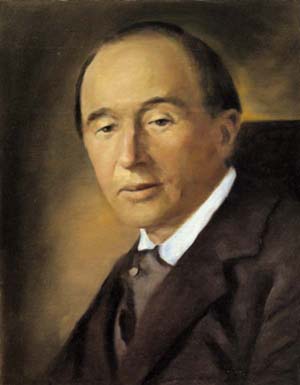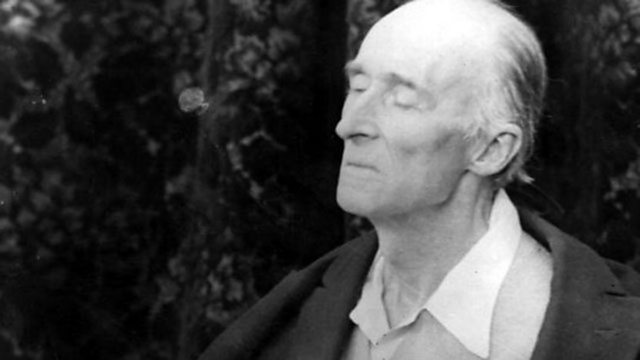Frederick Delius: A Complete Biography
Introduction
Frederick Delius (1862–1934) was one of England’s most distinctive and original composers. His music, noted for its impressionistic textures, rich harmonies, and poetic sensibility, often evokes natural beauty, philosophical reflection, and human emotion. While he was British by birth, Delius’s musical voice was shaped by a rich tapestry of international influences—from American spirituals to French impressionism and German romanticism. Often overlooked in mainstream music history, Delius occupies a unique position in the pantheon of early 20th-century composers, celebrated for works like A Mass of Life, Brigg Fair, and On Hearing the First Cuckoo in Spring.

Childhood
Frederick Theodore Albert Delius was born on January 29, 1862, in Bradford, Yorkshire, England, to a prosperous German-born wool merchant family. His parents, Julius and Elise Delius, were strict, cultured, and deeply rooted in their German heritage. Music was a part of the household, though Julius believed strongly in the value of business over artistic pursuits. Despite his father’s opposition, Delius showed early signs of musical talent, learning violin and piano as a child. However, his interest in music was largely discouraged in favor of joining the family trade.
Bradford, with its industrial dynamism and large immigrant population, offered young Frederick a contrast between the noise of commerce and the refuge of nature. He was especially drawn to the beauty of the Yorkshire countryside, a theme that would later emerge frequently in his compositions.
Youth
Against his father’s wishes, Delius began exploring music more seriously during his teenage years. He briefly worked in the family business but found it stifling. Hoping to instill discipline and distract him from music, his father sent him to Florida in 1884 to manage an orange plantation near the town of Solano Grove.
This unexpected detour had a profound impact on Delius. Though he proved a poor farmer, the time in Florida introduced him to African-American spirituals and folk songs. The music of the local Black workers left an indelible mark on his musical psyche, influencing works such as Appalachia and Koanga.
During his stay in Florida, Delius also began taking music lessons from Thomas Ward, an organist in Jacksonville. Encouraged by Ward and increasingly drawn to music, he abandoned agriculture and returned to Europe, determined to pursue a career in composition.
Adulthood
In 1886, with grudging consent from his father, Delius enrolled at the Leipzig Conservatory in Germany. There he studied under Carl Reinecke and met fellow student Edvard Grieg, who became an important mentor and supporter. Leipzig exposed Delius to the German Romantic tradition, although he was often at odds with its rigid academic structure.
After his studies, Delius settled in Paris, where he immersed himself in the vibrant artistic scene of the Belle Époque. He associated with painters, writers, and musicians, absorbing the ideals of French impressionism and symbolist poetry. In 1903, he met Jelka Rosen, a German painter of noble descent, whom he married two years later. The couple settled in Grez-sur-Loing, a quiet village near Fontainebleau, where Delius composed many of his major works.
Delius’s music began gaining wider attention in the early 20th century, thanks in part to the support of English conductor Sir Thomas Beecham. Beecham became his lifelong champion, organizing performances, promoting his work, and even assisting in Delius’s care in his later years.
Though increasingly afflicted by syphilis—likely contracted in his youth—Delius continued to compose, even after becoming paralyzed and blind. Remarkably, he completed several works by dictating them to his devoted amanuensis, Eric Fenby, a young Yorkshire musician who volunteered to assist him from 1928 until Delius’s death.
Major Compositions
Frederick Delius’s musical style is marked by lush chromaticism, pastoral themes, and a lyrical approach to orchestration. His work often defies easy classification but is typically grouped with late-Romantic and early-modernist composers.
Among his most significant compositions are:
- “On Hearing the First Cuckoo in Spring” (1912) – One of Delius’s most beloved tone poems, it evokes the atmosphere of early spring with gentle orchestral color and folk-like themes.
- “Brigg Fair” (1907) – A rhapsody based on a Lincolnshire folk song, this work exemplifies Delius’s gift for transforming simple melodies into expansive, atmospheric canvases.
- “A Mass of Life” (1904–05) – A monumental choral work based on the writings of Friedrich Nietzsche, showcasing Delius’s philosophical depth and vocal imagination.
- “Appalachia” (1896–1903) – A set of variations for chorus and orchestra on a plantation song, it reflects the influence of Delius’s time in America.
- “Koanga” (1896–97) – One of the earliest operas to incorporate African-American musical elements, this work set in the American South explores themes of race and identity.
- “Sea Drift” (1903–04) – A setting of Walt Whitman’s poetry, expressing themes of love, loss, and the eternal flow of nature.
His chamber and vocal music, including Songs of Sunset and The Walk to the Paradise Garden, are also admired for their emotional delicacy and spiritual introspection.
Death
By the early 1920s, Delius’s health had deteriorated significantly. He was completely blind and paralyzed from the waist down due to complications from syphilis. In these final years, his collaboration with Eric Fenby proved crucial. Fenby patiently transcribed Delius’s dictated musical ideas, resulting in late works such as A Song of Summer and Songs of Farewell.
Frederick Delius died on June 10, 1934, at the age of 72, in Grez-sur-Loing. He was initially buried in the local cemetery, but in 1935, his remains were reinterred in Limpsfield, Surrey, England, near his champion Sir Thomas Beecham, fulfilling his wish to rest in English soil.
Conclusion
Frederick Delius remains a unique figure in classical music—a composer of deeply personal expression, whose works transcend national and stylistic boundaries. Though often misunderstood or neglected during his lifetime, he created a body of music that speaks to the transcendental beauty of nature, the complexity of human feeling, and the universality of artistic experience. Thanks to figures like Thomas Beecham and Eric Fenby, his legacy endures, offering listeners a glimpse into a musical world of serene landscapes and poetic nuance.

Comments are closed